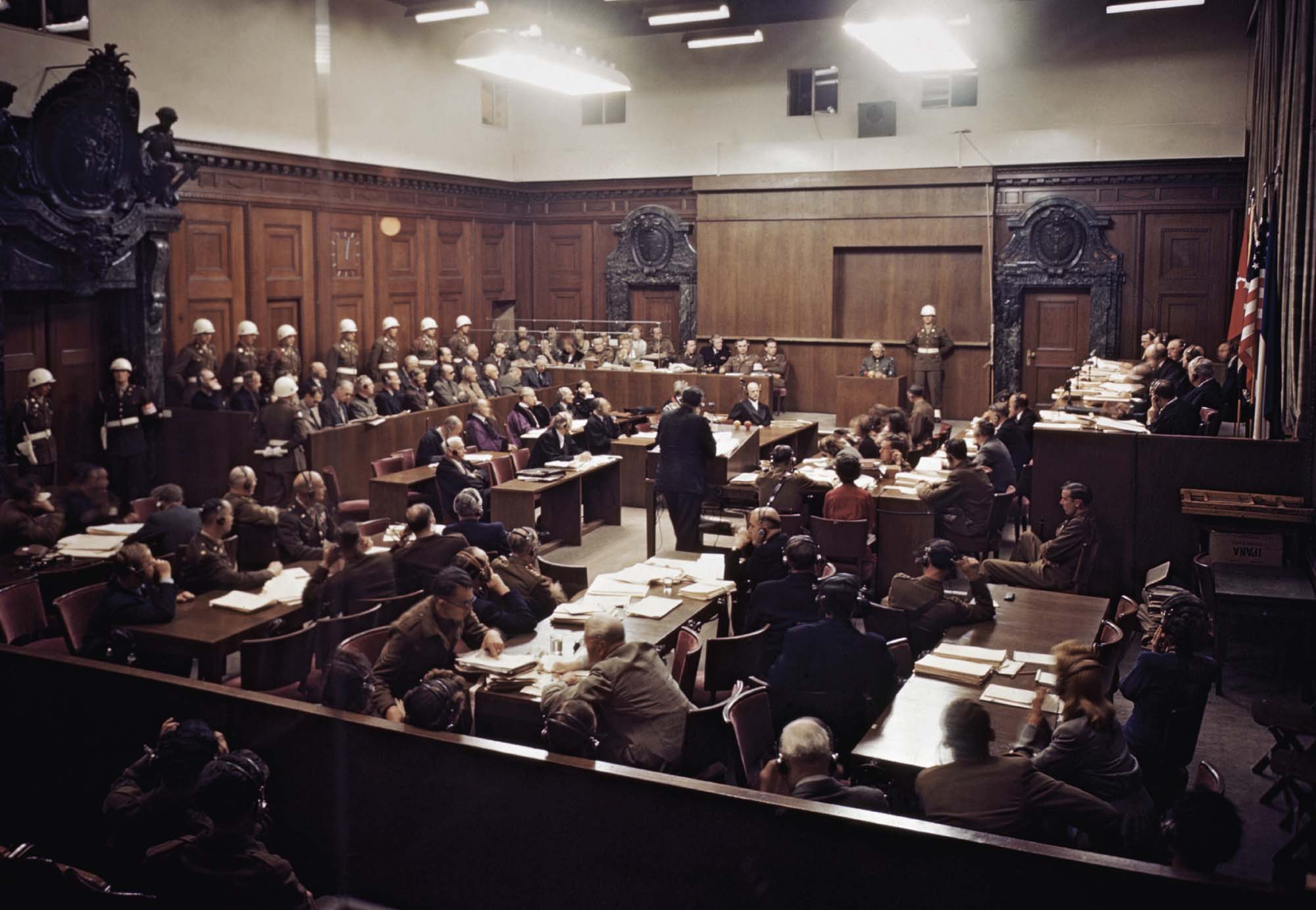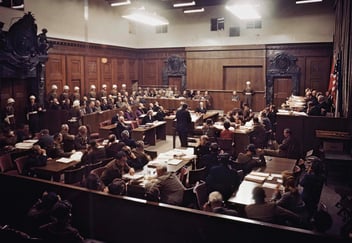The courtroom was silent, save for the faint rustling of papers. The day had been long, filled with arguments, counterarguments, and the unyielding determination of Ahmad. Yet, as the case reached its final chapter, there was a sense that this was no ordinary trial. It was a reckoning—a confrontation between two visions of the future: one rooted in natural law, dignity, and freedom; the other driven by control, mechanization, and the illusion of progress.
Ahmad stood, his presence steady yet resolute. He was not merely a litigant but a voice for the voiceless, a beacon of hope for those who feared that humanity’s essence was slipping away. This was humanity’s last stand.
The Crisis of Identity
“Who are we?” Ahmad began, his voice carrying the weight of centuries of human history. “This is not merely a philosophical question but the central issue of our time. For in answering it, we decide the fate of humanity itself.”
He described the encroaching tide of transhumanism, the rise of technocratic systems, and the erosion of individuality. Humanity, once defined by its capacity for reason, emotion, and moral choice, was being reduced to data points, algorithms, and programmable responses. Ahmad painted a stark picture of a future where human identity was no longer shaped by shared values and intrinsic dignity but by artificial constructs imposed from above.
“We are at a crossroads,” he said. “One path leads to the fulfillment of our essence, rooted in fitrah and natural law. The other leads to our dissolution, where we become mere components in a machine-driven world.”
The Role of Natural Law in Redemption
Ahmad turned to the principles of deen al-fitrah, the natural order that had guided humanity through ages of turmoil and triumph. He spoke of its timeless truths, its grounding in balance and justice, and its ability to offer a compass in times of moral uncertainty.
“Natural law,” he argued, “is not a relic of the past but a guide for the future. It reminds us that justice is not a matter of efficiency but of harmony. It teaches us that freedom is not a privilege but a birthright.”
Ahmad emphasized that the crises facing humanity—climate change, economic disparity, and technological upheaval—could not be solved by abandoning natural law. Instead, they demanded a return to its principles, a recognition that solutions must respect the dignity and freedom of every individual.
The Failure of Modern Constructs
With precision, Ahmad dismantled the narratives of the Great Reset and the Fourth Industrial Revolution. He showed how these initiatives, though wrapped in the language of progress, were fundamentally flawed. They sought to impose artificial systems that prioritized control over compassion, efficiency over equity, and innovation over integrity.
“Do not be deceived by promises of utopia,” he cautioned. “The Great Reset is not a vision of progress but a blueprint for domination. It is a betrayal of humanity’s trust, a violation of the sacred covenant of fitrah.”
He spoke of the dangers of centralized systems, from biometric currencies to digital surveillance, and the risks they posed to individual autonomy. These systems, Ahmad argued, were not tools of liberation but mechanisms of enslavement.
A Call to Action
As his argument reached its crescendo, Ahmad issued a call to action. He addressed not only the court but the world, urging individuals, communities, and nations to stand together in defense of humanity’s essence.
“This is not a battle for one man, one nation, or one generation,” he declared. “It is a battle for the soul of humanity. We must resist the forces that seek to redefine us, not with violence but with conviction. We must reclaim our fitrah, our natural law, and our shared destiny.”
Ahmad outlined a vision for resistance, grounded in unity and justice. He called for the creation of systems that reflected the principles of natural law, systems that valued people over profit and harmony over control. He emphasized the importance of education, awareness, and grassroots action in building a movement that could challenge the technocratic agenda.
The Verdict of History
As the courtroom prepared for the final judgment, Ahmad reflected on the broader implications of the case. This trial, he argued, was not merely about Malaysia or the policies of the Great Reset. It was about the verdict of history.
“History will judge us,” he said, “not by the systems we build but by the values we uphold. Will we be remembered as the generation that surrendered to the machinery of control? Or as the generation that stood firm, that fought for freedom, dignity, and justice?”
He reminded the court that the power to shape the future lay not in the hands of elites but in the collective will of humanity. It was a power that could only be realized through a commitment to truth, a respect for natural law, and an unwavering belief in the value of every human soul.
A Closing Reflection
The gavel struck, signaling the end of the proceedings. The courtroom buzzed with anticipation, but Ahmad’s expression remained calm. He had done what he set out to do: to present a case not only to the court but to the conscience of humanity.
As the room emptied, a quiet resolve lingered. This was not merely the end of a trial but the beginning of a movement. Ahmad’s words had ignited a spark, a reminder that humanity’s essence could not be erased by machines or manipulated by power. It was a spark that would spread, lighting the path toward a future where justice, dignity, and harmony prevailed.
Humanity’s last stand, it seemed, was far from over. It was a battle that would continue, not in courtrooms but in hearts, minds, and communities around the world. And in that battle, the principles of natural law would remain a guiding light, a testament to the enduring power of justice and the unyielding spirit of the human soul.




